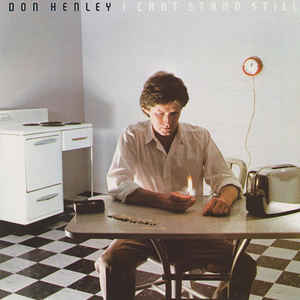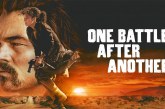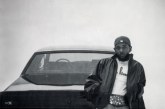Former Eagles co-founder goes solo with ‘I Can’t Stand Still’
In August 1982, Don Henley’s first solo album landed on record store shelves, as the co-founder, songwriter and longtime drummer for the Eagles released “I Can’t Stand Still.” It was the second LP released by a founding Eagles member not to be kicked out of the band. (Glenn Frey’s solo debut “No Fun Aloud” came out two months earlier.) Both were admirable efforts that each spawned a couple of hits, but Henley must be considered the best solo artist to emerge from the group after it officially broke up in 1980.
Frey went on to become known as one of classic rock’s biggest sellouts, while Henley to date has released four studio albums, all of which have been critically acclaimed and experienced at least modest success on the charts.
In 1982, Henley faced legal trouble when an underage girl was found naked in his home, having reportedly overdosed on cocaine and Quaaludes. That experience was what inspired him to write “Dirty Laundry,” the album’s bestselling single, which remains a staple at his solo shows, as well as at concerts of the reunited Eagles. The track was one of three singles (along with the title cut and “Johnny Can’t Read”) to be culled from the record.
Only “Dirty Laundry” packs a significant punch on the album. But the rest of it is full of charmers like “You Better Hang Up” and “Nobody’s Business.” The former is about a New Yorker involved in an adulterous affair with a married Southern farm girl, while the latter is another fun tune with very little significance. It does manage to fit on the record just fine, though, as it is a typical pop album with songs mainly about broken love. “Long Way Home,” “Talking to the Moon” and the title track fit this billing.
“Johnny Can’t Read,” however, is about the failure of the American educational system. “Dirty Laundry” expresses Henley’s disdain for the media following the aforementioned controversial incident and “Them and Us” appears to examine the Cold War. There’s also the tender ballad “Lilah,” and the album ends with Henley’s version of the Southern gospel tune “The Unclouded Day.”
In short, Henley’s debut serves as perhaps the quintessential example of an early ‘80s rock album. But ghosts of his fellow Eagles are there on the edges. How could they not be? He was a major artistic force in the group, and “I Can’t Stand Still” features contributions from Joe Walsh and Timothy B. Schmit, as well as from longtime group collaborator J.D. Souther.
The work remains one of the underappreciated charmers from that era of music and initially proved that Henley had the talent to be a competent solo artist. Fans truly would discover that to be the case a couple of years later with the release of 1984’s blockbuster “Building the Perfect Beast.”








